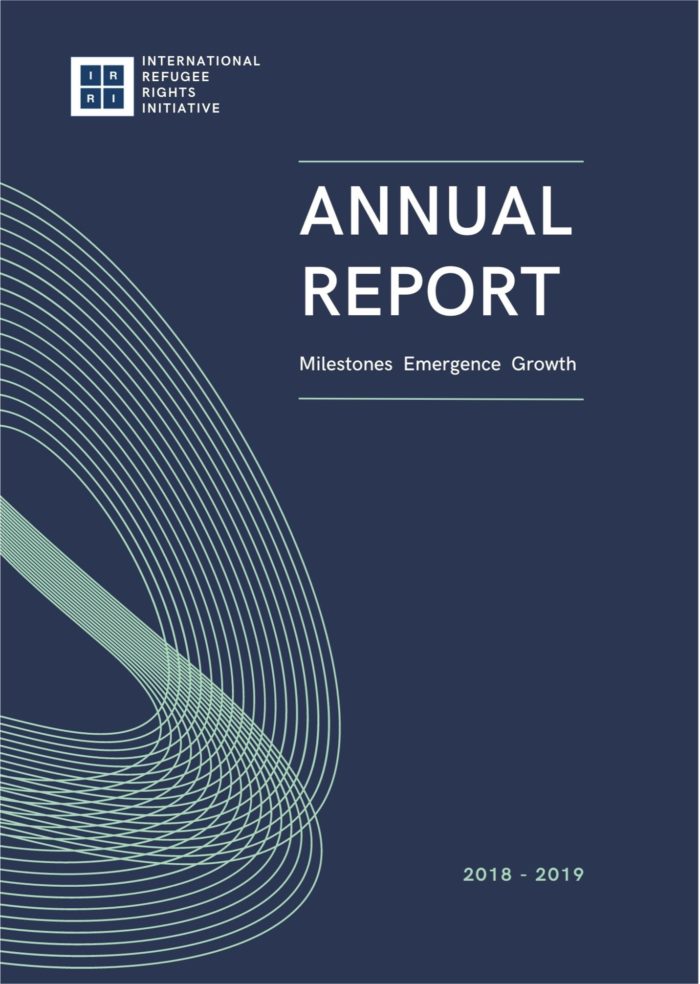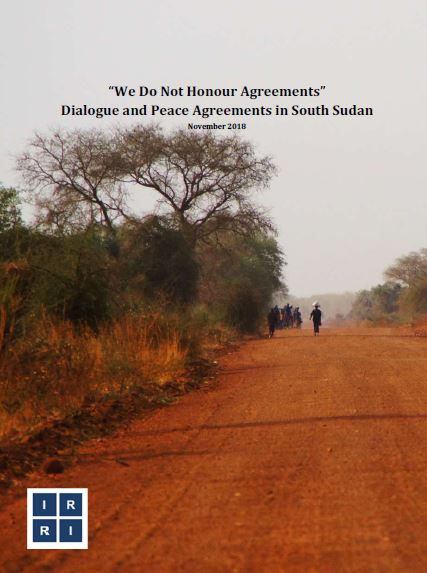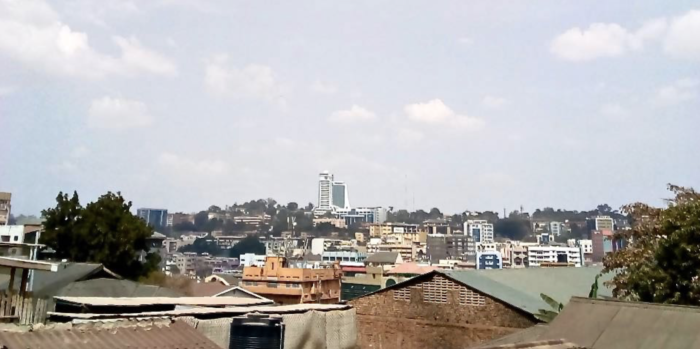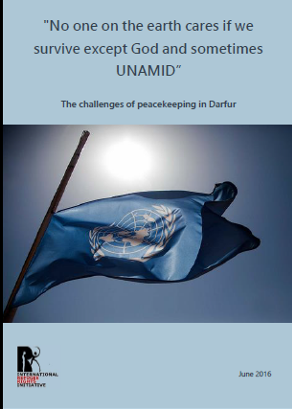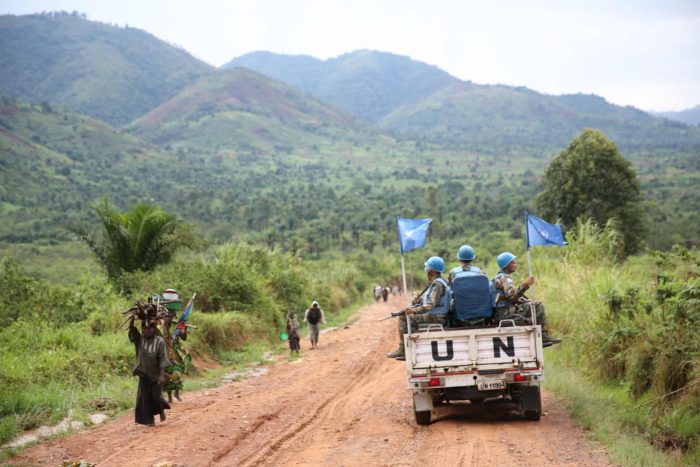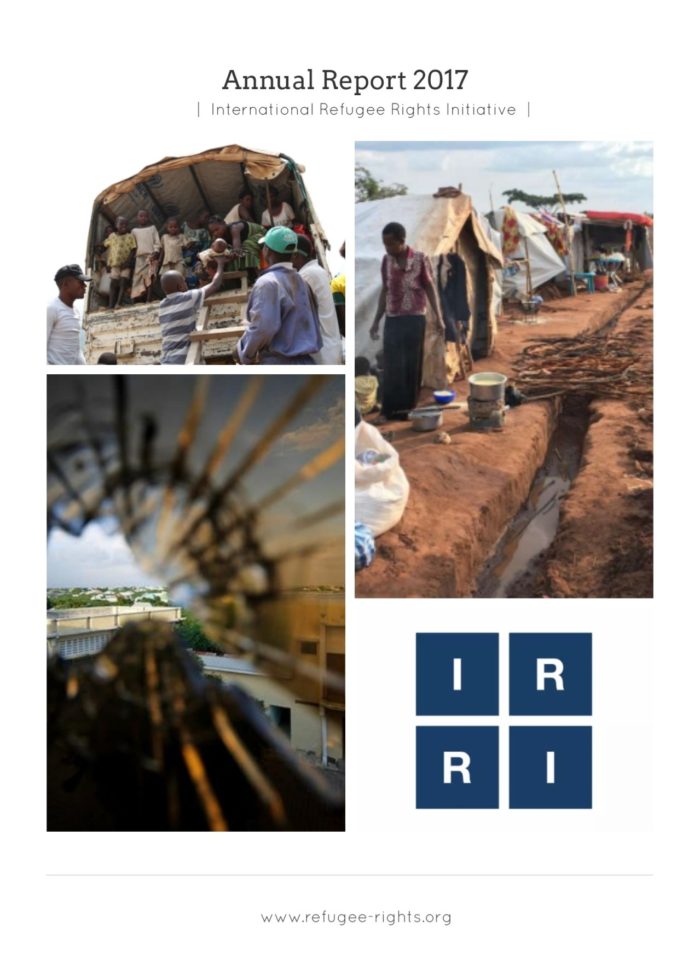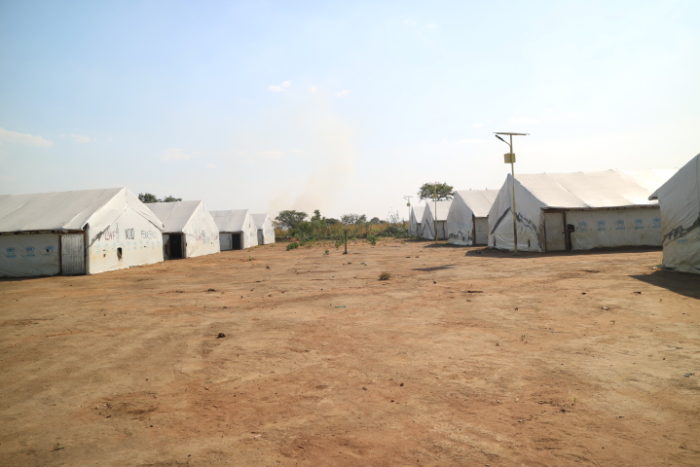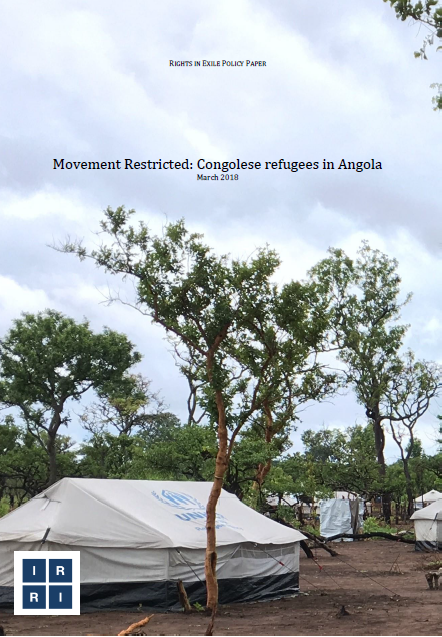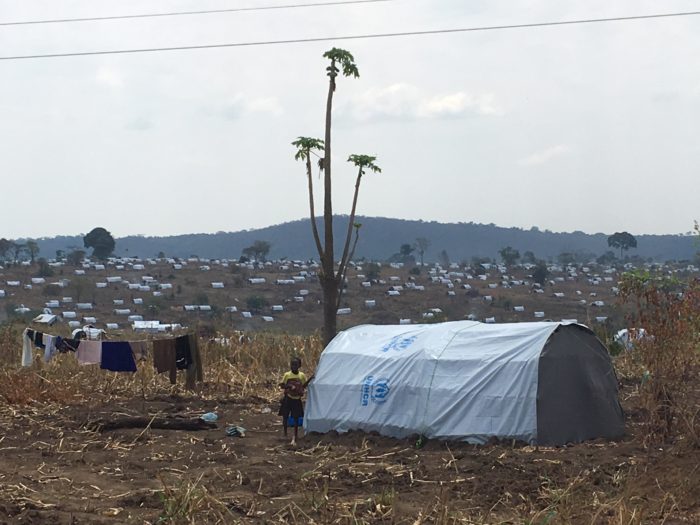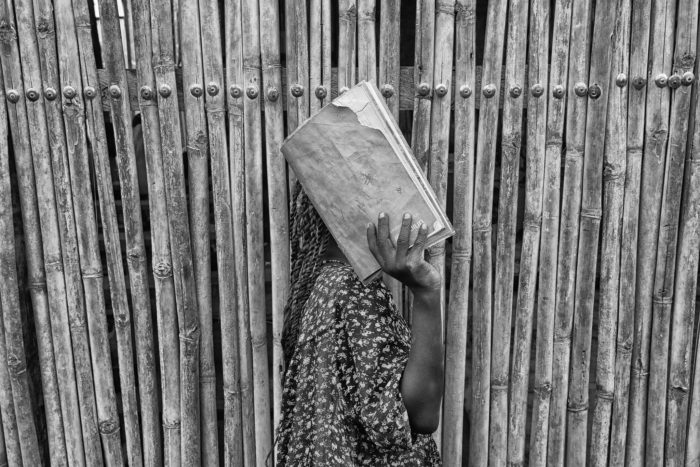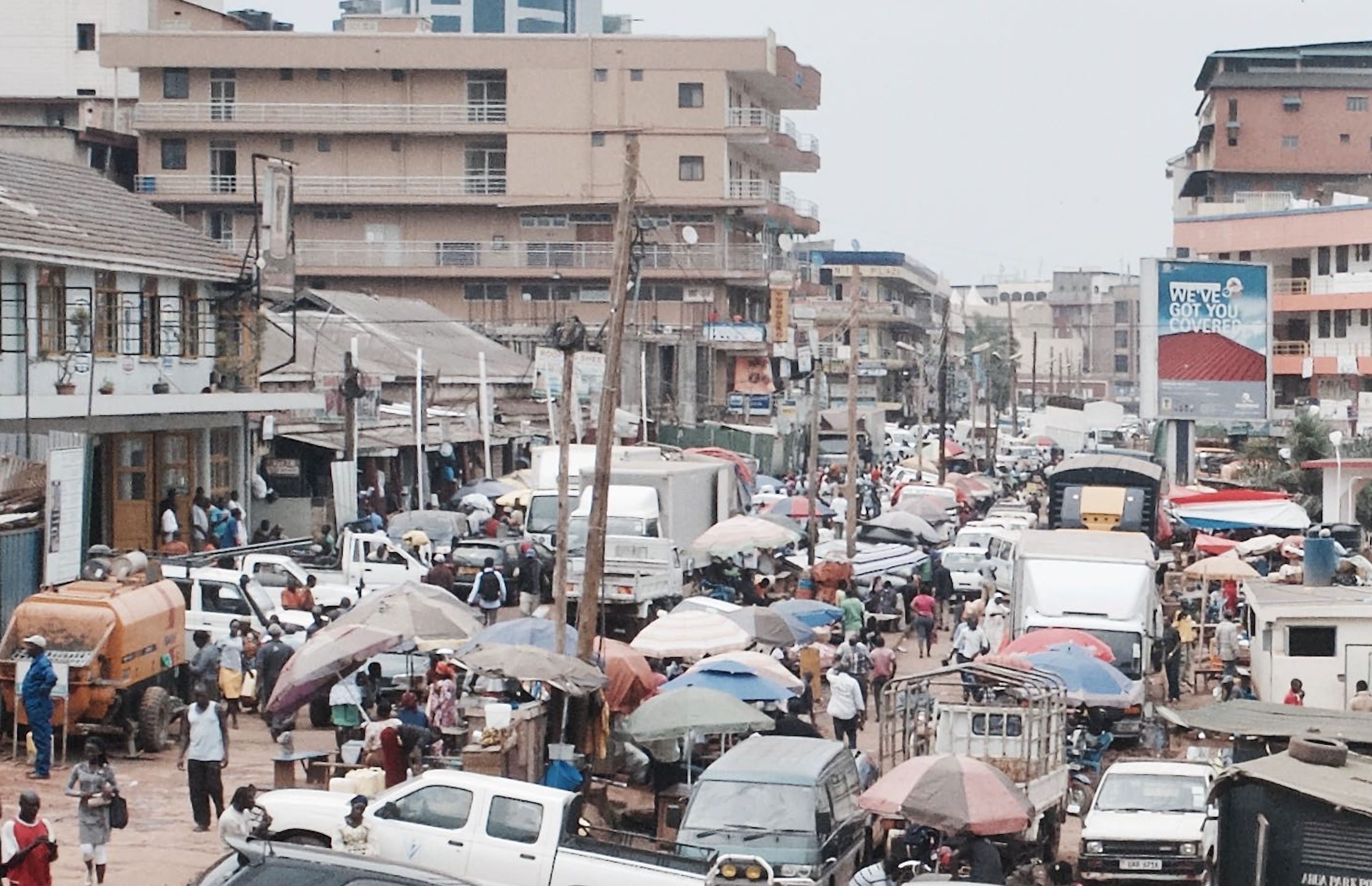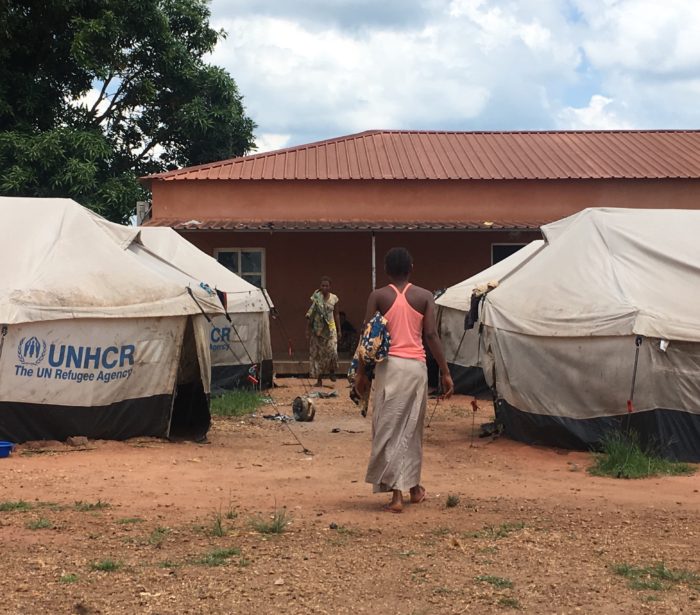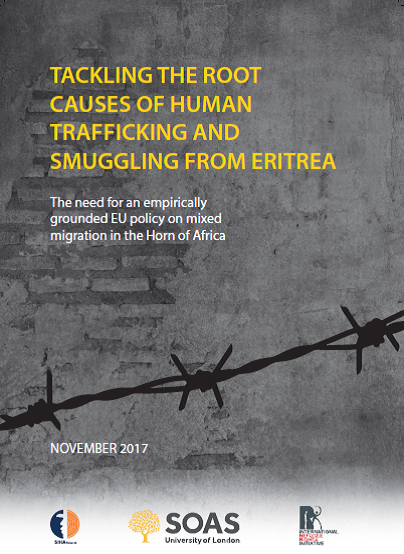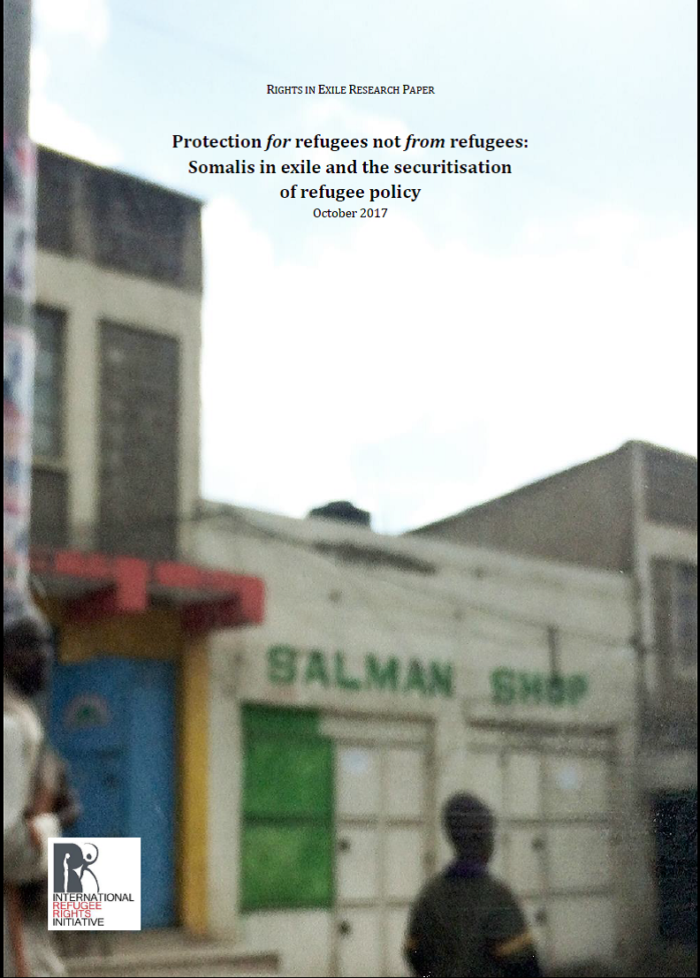FROM THE EXECUTIVE DIRECTOR When I was joining IRRI in the first quarter of 2019, I could not have imagined the dynamism and shifts we would experience by the end of 2019. We changed. Simply put. At the milestone of 15 years, we determined that we needed to re- strategise and rethink IRRI, and what…
Statelessness affects ten thousands of people in East Africa. Being stateless has significant negative impact on the lives of affected persons – who are unable to access fundamental rights to which they are entitled under human rights law, but which require state mediation to access in practice. Without identification documents they are not able to…
As South Sudanese and international actors evaluate the potential of the recently signed agreement to move the country towards peace, the International Refugee Rights Initiative has released a new report highlighting the views of South Sudanese citizens, both who have remained at home and the displaced, on dialogue and peace agreements. Although the research was…
Uganda’s refugee policy urgently needs an honest discussion, if sustainable solutions for both refugees and host communities are to be found, a new policy paper by International Refugee Rights Initiative (IRRI) reveals. The paper, entitled Uganda’s refugee policies: the history, the politics, the way forward puts the “Ugandan model” in its historical and political…
A new policy paper by the International Refugee Rights Initiative (IRRI) examines Eritrean asylum seekers’ ability to access refugee status in Uganda. It shows how the combination of low recognition rates, the proliferation of informal interlocutors and corruption all render refugee status increasingly inaccessible to Eritreans and undermine the efficiency of the Ugandan asylum system….
Joint statement by 26 international NGOs in Uganda on the need for urgent action to address gaps in funding for the refugee response. Uganda hosts the largest number of refugees in Africa, and is among the top refugee hosting countries globally. Every day more people, mostly women and children, continue to arrive in search of…
22 June 2018 To United Nations Security Council Members Re: Proposed reduction to the UNAMID mandate in Darfur Dear Ambassadors, We, the undersigned Sudanese, scholars, human rights organizations and leading activists, write to you to express our concerns with the upcoming proposal regarding the status of UNAMID. In light of frequent and recent devastating incidents of violence,…
“African States should seize the opportunity to set clear standards on the recognition of nationality and the eradication of statelessness”, urged a coalition of African civil society organisations working on the issue. Member States are meeting in Abidjan, 7-11 May 2018, to discuss the text of a draft protocol to the African Charter on Human…
On March 30, the UN Security Council renewed the mandate of the UN Stabilization Mission in the Democratic Republic of Congo (DRC), known under its acronym MONUSCO. In contrast to last year, it was renewed without the threat of budget cuts or any major changes to its complex mandate. The mission maintains its two priorities: addressing the tense…
IRRI’s 2017 Annual Report highlights our work in a year of significant achievement for us, as we continued to work on our three main programmatic areas of: -identifying the violations that cause displacement and exile; -protecting the rights of those who are displaced, and -ensuring resolutions to their displacement are durable, rights respecting, safe and timely. The…
By January 2018, there were approximately 1.4 million refugees and asylum seekers in Uganda, the majority of whom are from South Sudan. The rapid expansion and demarcation of land for refugee settlements in northern Uganda has allowed national and international actors to respond to the humanitarian needs of South Sudanese refugee communities. While this…
Between March and July 2017, close to 35,000 Congolese refugees fled atrocities in the Kasai region and sought safety in Angola. While the Angolan government has offered many safety from militia and army attacks in the Democratic Republic of Congo (DRC), its treatment of those who have fled is troubling. IRRI’s policy paper –…
We, the undersigned International Non-Governmental Organisations (INGOs), are taking the allegations of fraud and corruption in the South Sudanese refugee response in Uganda seriously and urge that they are urgently investigated and appropriate measures and sanctions are taken. We are concerned that these allegations are impacting donors’ and UN agencies allocation of funds for this…
Over sixty people killed, thousands of houses burned down and more than 100,000 displaced people, including 42,000 refugees in neighbouring Uganda. Those are the consequences so far of the violence in the north-eastern Ituri province of the Democratic Republic of Congo (DRC) since December 2017. The violence marks a counterpoint to the general trend in…
To Permanent Representatives of Member and Observer States of the United Nations Human Rights Council, Geneva 23 February 2018 RE: Renewing and strengthening the mandate of the Commission on Human Rights in South Sudan to ensure accountability for gross violations of human rights and related crimes in South Sudan Excellencies, We, the undersigned national, regional and…
Following recent cases of abductions and extraditions in East Africa, a new policy paper by the International Refugee Rights Initiative (IRRI) seeks to clarify the key legal obligations of countries hosting foreign political opponents and opposition figures, and to urge governments to respect these obligations. Across East Africa the protection of politically active or politically…
International Refugee Rights Initiative (IRRI) published a new report about violence and displacement in the Kasai region of the Democratic Republic of Congo (DRC). It describes how attacks by a militia were followed by abusive military operations and mass killings by a pro-government militia, causing the death and displacement of hundreds of thousands. IRRI spoke…
The joint EU-Africa policy on migration from Eritrea and the Horn of Africa is in urgent need of reform, according to a new report.
“I don’t want to go back [to Burundi],” Marie[i], a 29 year old widow, told International Refugee Rights Initiative (IRRI) in June, when we interviewed her in a refugee settlement in Uganda. “There are too many criminals in Burundi and I know they can’t put them all in prison.” Her husband, an opposition member, had…
Over the last 25 years, drought, violence and human rights abuses have pushed millions of Somalis from their homes.1 Many have remained within Somalia, while others have fled across international borders, either into neighbouring countries like Kenya, or further afield to Uganda, Europe or the United States (US). As with many large groups of exiles,…
